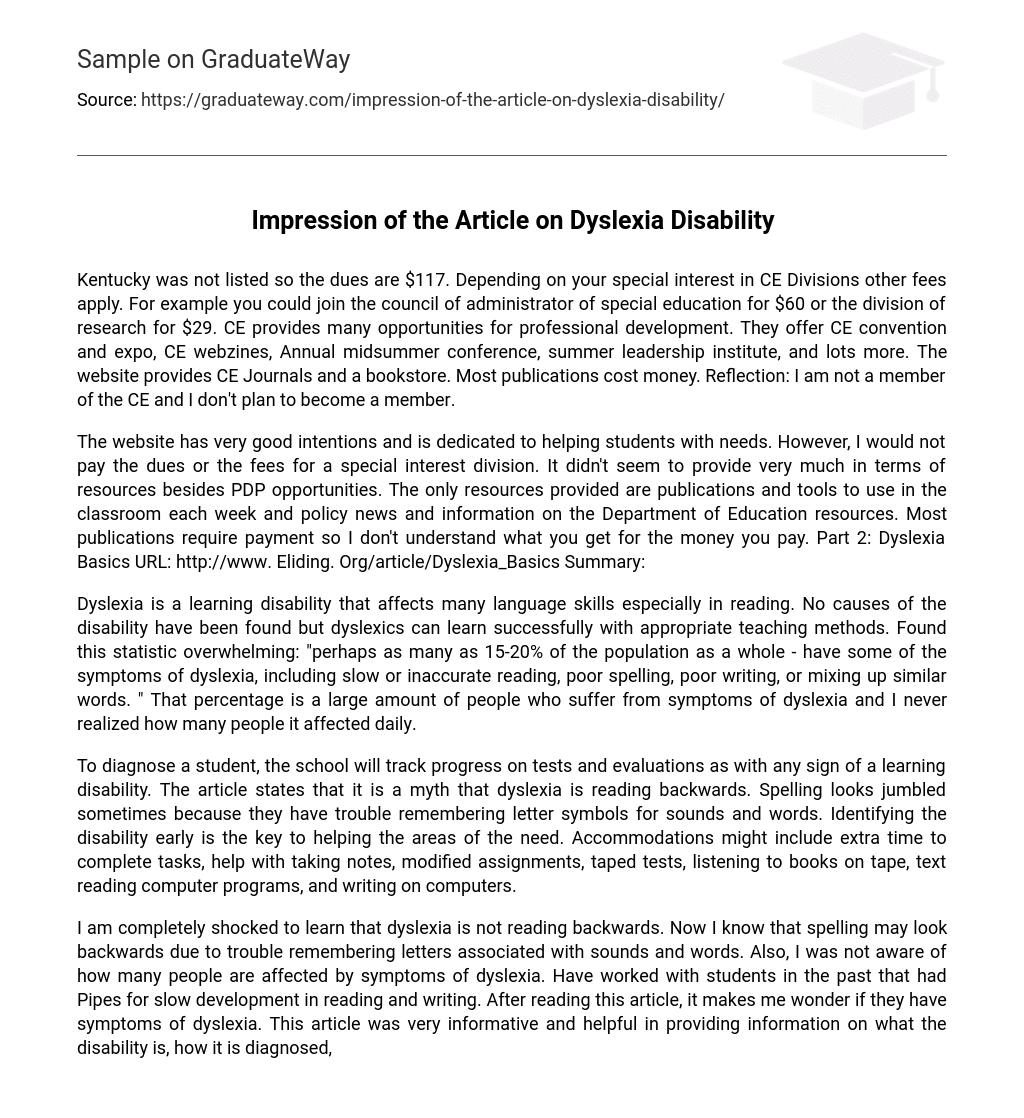Kentucky was not listed so the dues are $117. Depending on your special interest in CE Divisions other fees apply. For example you could join the council of administrator of special education for $60 or the division of research for $29. CE provides many opportunities for professional development. They offer CE convention and expo, CE webzines, Annual midsummer conference, summer leadership institute, and lots more. The website provides CE Journals and a bookstore. Most publications cost money. Reflection: I am not a member of the CE and I don’t plan to become a member.
The website has very good intentions and is dedicated to helping students with needs. However, I would not pay the dues or the fees for a special interest division. It didn’t seem to provide very much in terms of resources besides PDP opportunities. The only resources provided are publications and tools to use in the classroom each week and policy news and information on the Department of Education resources. Most publications require payment so I don’t understand what you get for the money you pay. Part 2: Dyslexia Basics URL: http://www. Eliding. Org/article/Dyslexia_Basics Summary:
Dyslexia is a learning disability that affects many language skills especially in reading. No causes of the disability have been found but dyslexics can learn successfully with appropriate teaching methods. Found this statistic overwhelming: “perhaps as many as 15-20% of the population as a whole – have some of the symptoms of dyslexia, including slow or inaccurate reading, poor spelling, poor writing, or mixing up similar words. ” That percentage is a large amount of people who suffer from symptoms of dyslexia and I never realized how many people it affected daily.
To diagnose a student, the school will track progress on tests and evaluations as with any sign of a learning disability. The article states that it is a myth that dyslexia is reading backwards. Spelling looks jumbled sometimes because they have trouble remembering letter symbols for sounds and words. Identifying the disability early is the key to helping the areas of the need. Accommodations might include extra time to complete tasks, help with taking notes, modified assignments, taped tests, listening to books on tape, text reading computer programs, and writing on computers.
I am completely shocked to learn that dyslexia is not reading backwards. Now I know that spelling may look backwards due to trouble remembering letters associated with sounds and words. Also, I was not aware of how many people are affected by symptoms of dyslexia. Have worked with students in the past that had Pipes for slow development in reading and writing. After reading this article, it makes me wonder if they have symptoms of dyslexia. This article was very informative and helpful in providing information on what the disability is, how it is diagnosed, and how to help those in need.





